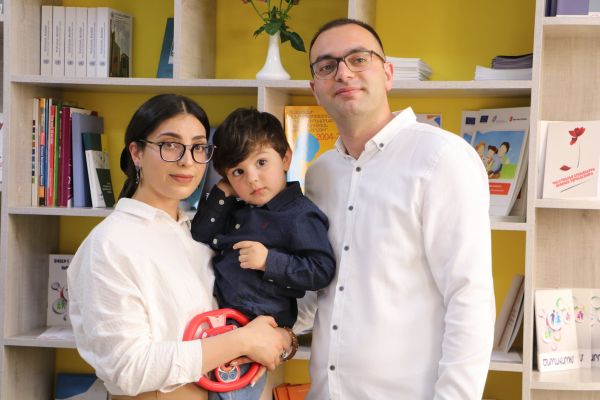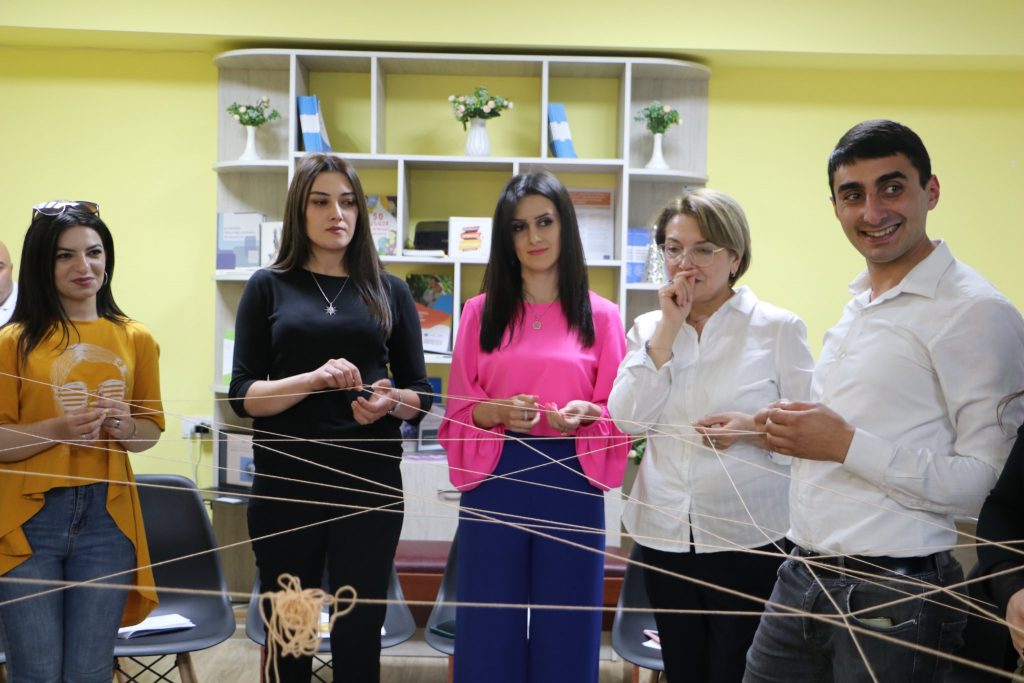Transforming Perceptions of Women’s and Men’s Roles in Parenting through the EU-Funded Family Corners

In recent years in Armenia, research indicates that fathers have become more involved in childcare and education. However, a significant percentage of them still acknowledge that their role is considered secondary, with women primarily shouldering the responsibilities of childcare.
The equality of women and men is not only a fundamental value upheld by the European Union and the United Nations but also holds crucial economic significance for the state. The elimination of gender stereotypes is pivotal from this perspective. To address this issue, the EU, in collaboration with the United Nations Population Fund (UNFPA) and UN Women, has implemented initiatives for gender equality. As part of the ” Together against Gender Stereotypes and Gender-based Violence” regional project, “Family Corner” resource centres have been established in Tavush, Lori, and Shirak marzes. These centres serve as platforms for organising meetings, courses, and events for young women and men in the region, with the aim of challenging stereotypes about the roles of women and men and increasing men’s involvement in childcare and parenting.
The project was launched in 2020 and is being implemented in six Eastern Partnership countries. In Armenia, it is executed by the UNFPA in three regions targeted by the European Union: Shirak, Lori, and Tavush.
Regular thematic trainings, workshops, contests, and discussions have been conducted in the “Family Corner” resource centres operating in these three marzes. As a result, both existing and future parents have learned about creating healthy relationships, fairly sharing responsibilities between partners, collaborating in childcare, and preventing domestic violence. “Our mission is to create an environment in our country where every individual can fully realise their potential, benefiting both the family and the community. We work with both women and men, aiming to empower women on one hand and increase men’s involvement in family and child care on the other,” states Tsovinar Harutyunyan, the head of the UNFPA Armenia office.

During the project’s implementation, approximately 560 young Armenians deepened their knowledge about men’s involvement in the family, positive parenting, and gender equality.
“To be a caring husband, it is not enough to take care of the family’s financial needs only. Caring, first of all, is sharing the responsibility of housework and childcare equally. This is the most important belief that has been strengthened in me as a result of the ‘School of Fathers,'” emphasizes 29-year-old Karen, a participant in the course.
Participants in the courses conducted in “Family Corners” studied the best ways to increase the father’s involvement in childcare and improved their understanding of the equality of women and men by participating in the “Schools of Fathers” and “Care for Equality” parenting courses conducted by the Armenian Office of UNFPA and the “Youth Initiative Centre” in cooperation with the NGO.
“Thanks to the introduction of the ‘School of Fathers’ model and the provision of two-month parenting courses in Shirak, Lori, and Tavush regions, we now see families equipped with valuable insights into responsible fatherhood and positive parenting. Additionally, young individuals in these areas now appreciate the importance of gender equality. We believe that a thriving and satisfied society is built upon families with caring men, engaged fathers, and understanding husbands.,” says Arthur Najarian, Chairman of the International Council of the “Youth Initiative Centre” NGO.
The project’s design was based on a deep analysis of the situation and consultations with six countries’ governments. The project is crafted to engage a wide range of government entities, civil society organizations, and individuals.
This provides a special opportunity for the European Union and the six participating countries to shape discussions, beliefs, and actions regarding gender equality. The ultimate aim is to achieve gender equality and meet the relevant Sustainable Development Goals.